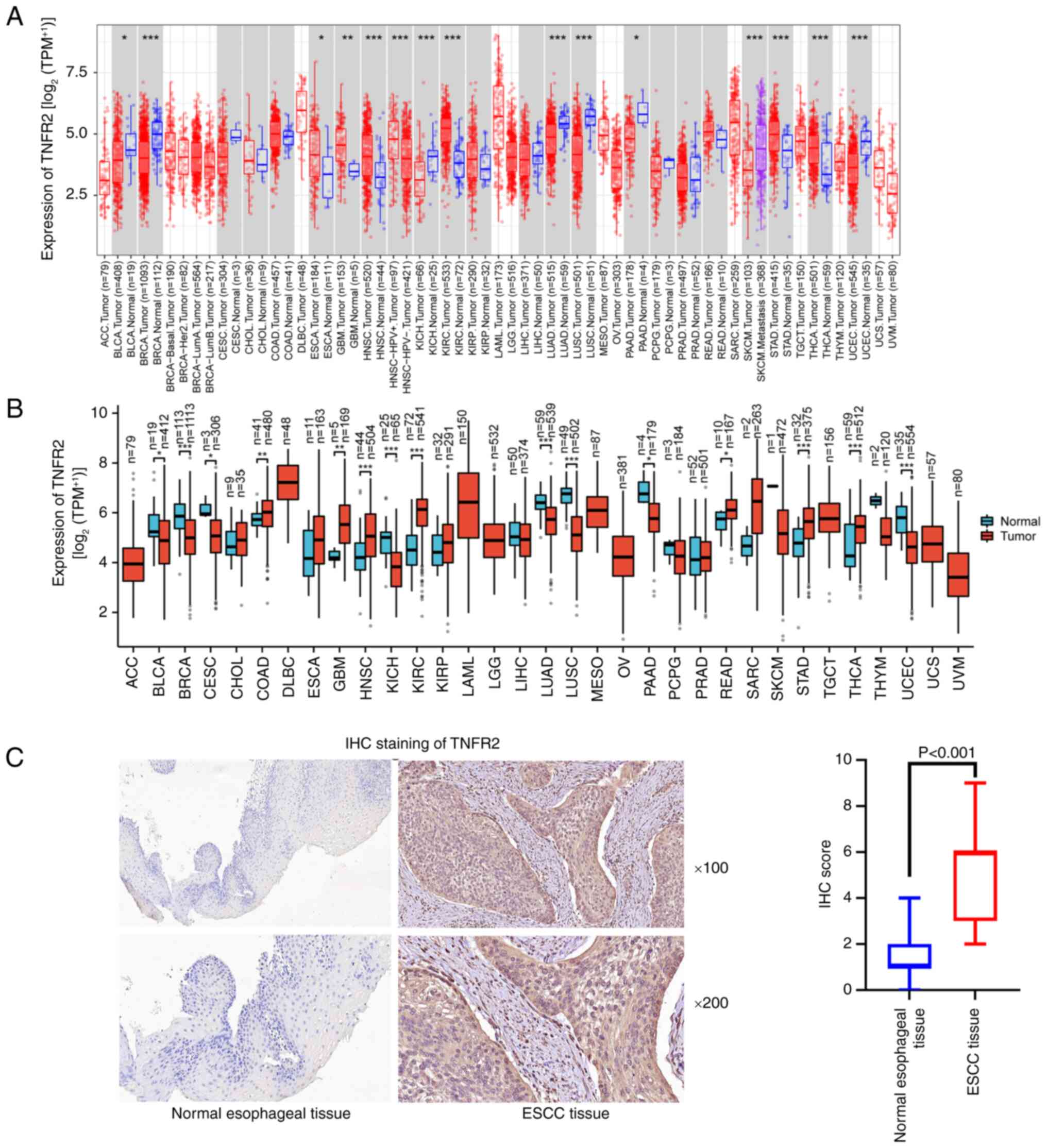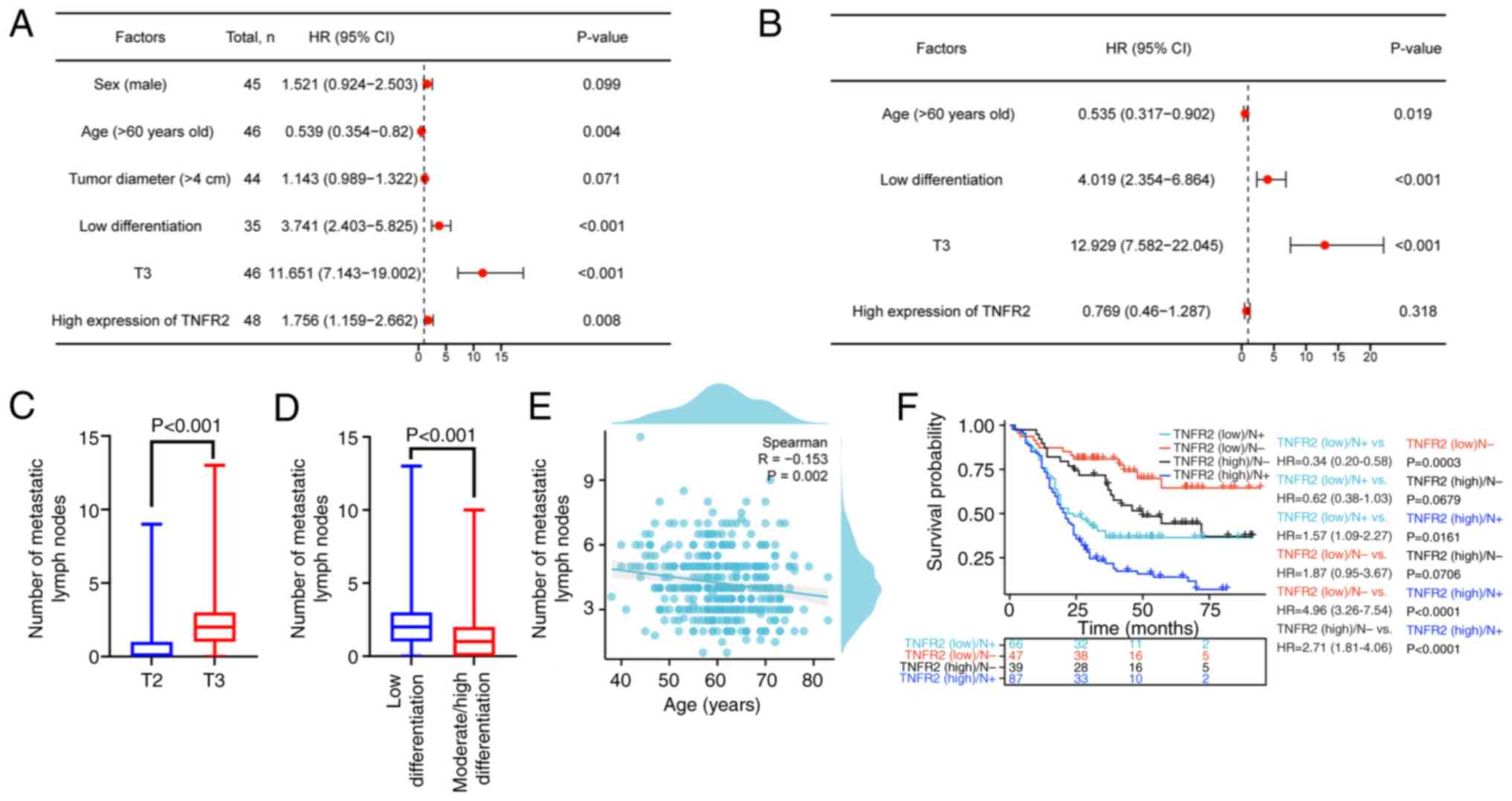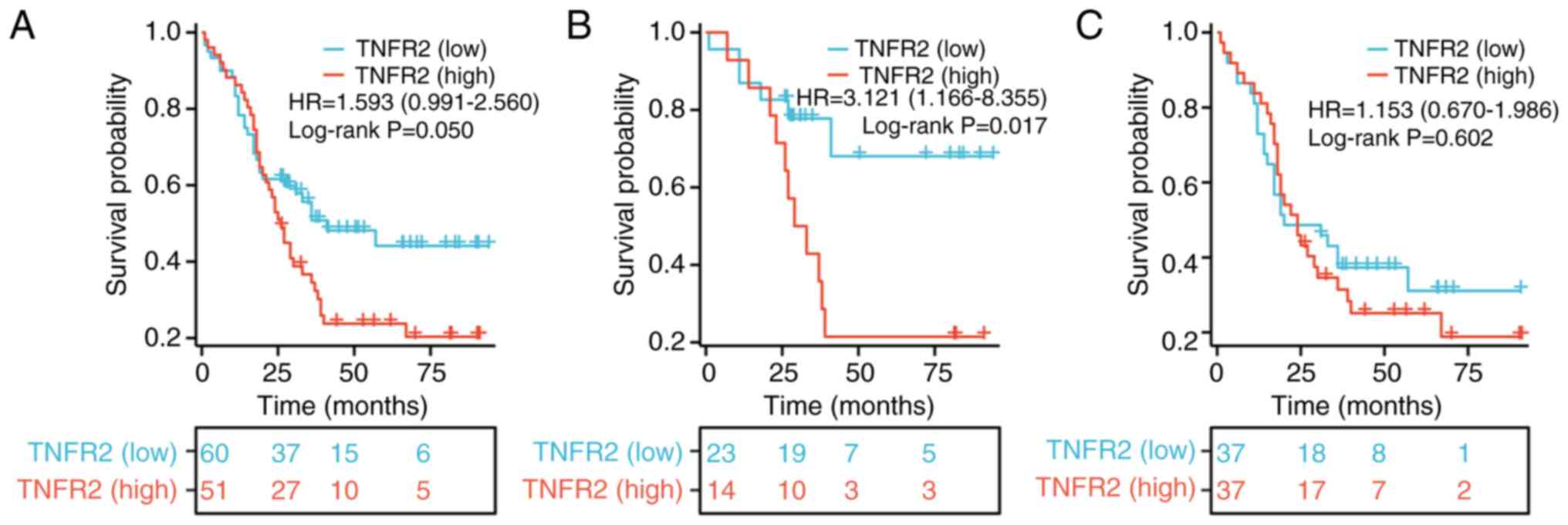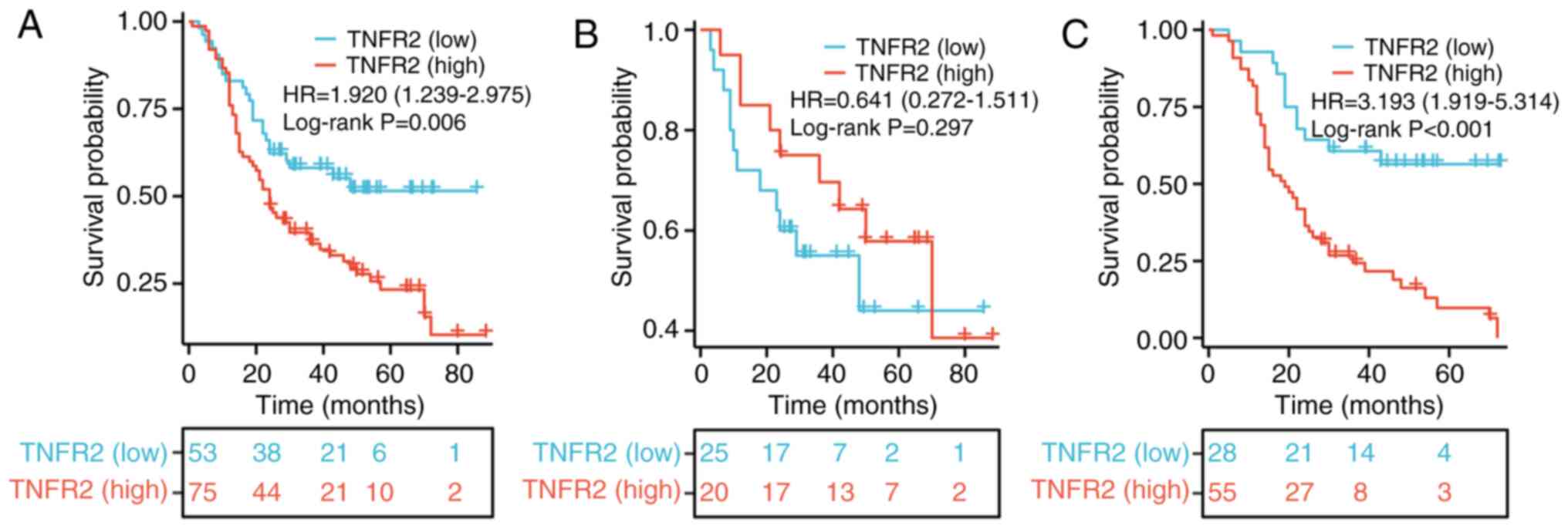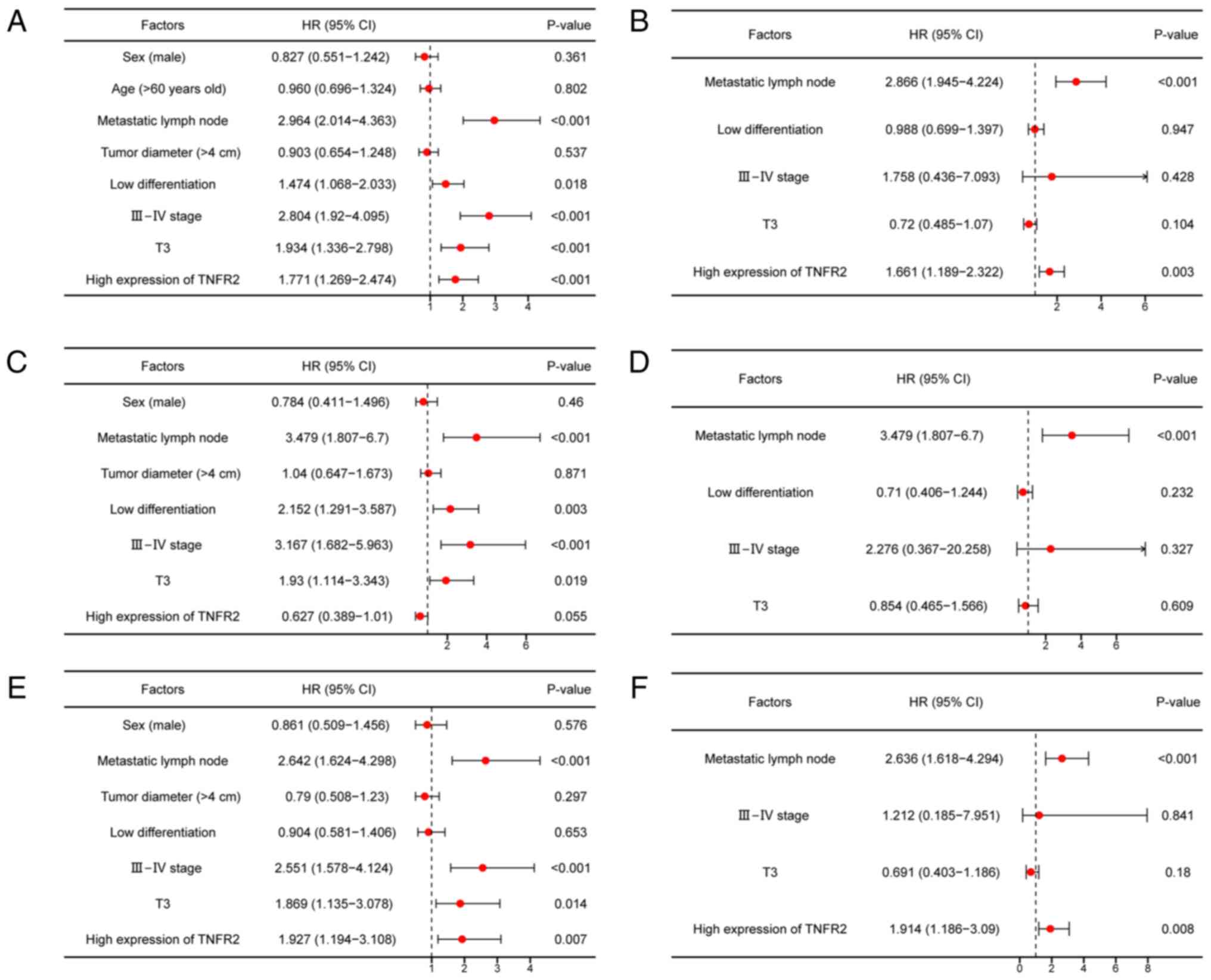|
1
|
Morgan E, Soerjomataram I, Rumgay H,
Coleman HG, Thrift AP, Vignat J, Ferlay J and Arnold M: The global
landscape of esophageal squamous cell carcinoma and esophageal
adenocarcinoma incidence and mortality in 2020 and projections to
2040: new estimates from GLOBOCAN 2020. Gastroenterology.
163:649–658.e2. 2022. View Article : Google Scholar : PubMed/NCBI
|
|
2
|
Codipilly DC and Wang KK: Squamous cell
carcinoma of the esophagus. Gastroenterol Clin North Am.
51:457–484. 2022. View Article : Google Scholar : PubMed/NCBI
|
|
3
|
Voron T, Julio C and Pardo E: Esophageal
carcinoma: Novelties and challenges in surgery. Bull Cancer.
110:533–539. 2023. View Article : Google Scholar : PubMed/NCBI
|
|
4
|
Xu J, Kato K, Raymond E, Hubner RA, Shu Y,
Pan Y, Park RS, Ping L, Jiang Y, Zhang J, et al: Tislelizumab plus
chemotherapy versus placebo plus chemotherapy as first-line
treatment for advanced or metastatic oesophageal squamous cell
carcinoma (RATIONALE-306): A global, randomised,
placebo-controlled, phase 3 study. Lancet Oncol. 24:483–495. 2023.
View Article : Google Scholar : PubMed/NCBI
|
|
5
|
Waters JK and Reznik SI: Update on
management of squamous cell esophageal cancer. Curr Oncol Rep.
24:375–385. 2022. View Article : Google Scholar : PubMed/NCBI
|
|
6
|
Edge SB and Compton CC: The American joint
committee on cancer: The 7th edition of the AJCC cancer
staging manual and the future of TNM. Ann Surg Oncol. 17:1471–1474.
2010. View Article : Google Scholar : PubMed/NCBI
|
|
7
|
Wang J, Wu N, Zheng QF, Yan S, Lv C, Li SL
and Yang Y: Evaluation of the 7th edition of the TNM
classification in patients with resected esophageal squamous cell
carcinoma. World J Gastroenterol. 20:18397–18403. 2014. View Article : Google Scholar : PubMed/NCBI
|
|
8
|
Mensink M, Tran TNM, Zaal EA, Schrama E,
Berkers CR, Borst J and Kivit SD: TNFR2 costimulation
differentially impacts regulatory and conventional CD4(+) T-Cell
Metabolism. Front Immunol. 13:8811662022. View Article : Google Scholar : PubMed/NCBI
|
|
9
|
Babic A, Shah SM, Song M, Wu K, Meyerhardt
JA, Ogino S, Yuan C, Giovannucci EL, Chan AT, Stampfer MJ, et al:
Soluble tumour necrosis factor receptor type II and survival in
colorectal cancer. Br J Cancer. 114:995–1002. 2016. View Article : Google Scholar : PubMed/NCBI
|
|
10
|
Torrey H, Butterworth J, Mera T, Okubo Y,
Wang L, Baum D, Defusco A, Plager S, Warden S, Huang D, et al:
Targeting TNFR2 with antagonistic antibodies inhibits proliferation
of ovarian cancer cells and tumor-associated Tregs. Sci Signal.
10:2017. View Article : Google Scholar : PubMed/NCBI
|
|
11
|
Wei MX, Song X, Zhao XK, Han WL, Bao Q,
Han XN, Xu RH, Li XM, Fan ZM, Wang R, et al: Clinicopathological
characteristics and postoperative prognosis of patients with
nuclear pedigree of esophageal squamous cell carcinoma. Front
Oncol. 13:11904572023. View Article : Google Scholar : PubMed/NCBI
|
|
12
|
Zhang H and Xiao W: TNFR1 and TNFR2
differentially mediate TNF-α-induced inflammatory responses in
rheumatoid arthritis fibroblast-like synoviocytes. Cell Biol Int.
41:415–422. 2017. View Article : Google Scholar : PubMed/NCBI
|
|
13
|
Bai J, Ding B and Li H: Targeting TNFR2 in
Cancer: All roads lead to rome. Front Immunol. 13:8449312022.
View Article : Google Scholar : PubMed/NCBI
|
|
14
|
He T, Zhao Y, Zhao P, Zhao L, Zakaria J
and Wang K: Signaling pathway(s) of TNFR2 required for the
immunoregulatory effect of CD4(+)Foxp3(+) regulatory T cells. Int
Immunopharmacol. 108:1088232022. View Article : Google Scholar : PubMed/NCBI
|
|
15
|
Gao Z, Zhang Q, Chen H, Chen J, Kang J, Yu
H, Song Y and Zhang X: TNFR2 promotes pancreatic cancer
proliferation, migration, and invasion via the NF-κB signaling
pathway. Aging. 15:8013–8025. 2023. View Article : Google Scholar : PubMed/NCBI
|
|
16
|
Wang L, Yang D, Tian J, Gao A, Shen Y, Ren
X, Li X, Jiang G and Dong T: Tumor necrosis factor receptor 2/AKT
and ERK signaling pathways contribute to the switch from
fibroblasts to CAFs by progranulin in microenvironment of
colorectal cancer. Oncotarget. 8:26323–26333. 2017. View Article : Google Scholar : PubMed/NCBI
|
|
17
|
Qu Y, Wang X, Bai S, Niu L, Zhao G, Yao Y,
Li B and Li H: The effects of TNF-α/TNFR2 in regulatory T cells on
the microenvironment and progression of gastric cancer. Int J
Cancer. 150:1373–1391. 2022. View Article : Google Scholar : PubMed/NCBI
|
|
18
|
Kashyap A, Rapsomaniki MA, Barros V,
Fomitcheva-Khartchenko A, Martinelli AL, Rodriguez AF, Gabrani M,
Rosen-Zvi M and Kaigala G: Quantification of tumor heterogeneity:
From data acquisition to metric generation. Trends Biotechnol.
40:647–676. 2022. View Article : Google Scholar : PubMed/NCBI
|
|
19
|
Patel SS, Nelson R, Sanchez J, Lee W,
Uyeno L, Garcia-Aguilar J, Hurria A and Kim J: Elderly patients
with colon cancer have unique tumor characteristics and poor
survival. Cancer. 119:739–7347. 2013. View Article : Google Scholar : PubMed/NCBI
|
|
20
|
Lin Y, Ye Y, Huang Q, Zheng B, Yang Y,
Chen Y, Li W, Ke H, Lin C, Zhang Y, et al: Influence of age as a
continuous variable on survival outcomes and treatment options in
patients with upper thoracic esophageal carcinoma. J Cancer.
14:1039–1048. 2023. View Article : Google Scholar : PubMed/NCBI
|
|
21
|
Zhang P, Wang S, Wu JZ and Song Q:
Clinical and prognostic significance of perioperative change in red
cell distribution width in patients with esophageal squamous cell
carcinoma. BMC Cancer. 23:3192023. View Article : Google Scholar : PubMed/NCBI
|
|
22
|
Feng RB, Zhou QZ, Cheng R, Li P, Zhu ST,
Min L and Zhang ST: Expression and significance of N-myc downstream
regulated gene 2 in the process of esophageal squamous cell
carcinogenesis. Bioengineered. 13:3275–3283. 2022. View Article : Google Scholar : PubMed/NCBI
|
|
23
|
Luo QY, Di T, Qiu MZ, Xia ZF, Du Y, Lin
RD, Yang LQ, Sun YT, Yang DJ, Sun J and Zhang L: High AKAP8L
expression predicts poor prognosis in esophageal squamous cell
carcinoma. Cancer Cell Int. 22:902022. View Article : Google Scholar : PubMed/NCBI
|
|
24
|
Xie C, Chen Z, Xu J, Meng Z, Huang Z and
Lin J: Influence of lymphangio vascular (V) and perineural (N)
invasion on survival of patients with resected esophageal squamous
cell carcinoma (ESCC): A single-center retrospective study. Peer J.
10:e129742022. View Article : Google Scholar : PubMed/NCBI
|
|
25
|
Wang N, Li Y, Zhou RM, Wang GY, Wang CM,
Chen ZF and Liu W: Hsa-miR-196a2 functional SNP is associated with
the risk of ESCC in individuals under 60 years old. Biomarkers.
19:43–48. 2014. View Article : Google Scholar : PubMed/NCBI
|
|
26
|
Silva Raju J, Abd Aziz NH, Atallah GA,
Teik CK, Shafiee MN, Mohd Saleh MF, Jeganathan R, Md Zin RR and
Kampan NC: Prognostic value of TNFR2 and STAT3 among high-grade
serous ovarian cancer survivors according to platinum sensitivity.
Diagnostics (Basel). 11:5262021. View Article : Google Scholar : PubMed/NCBI
|
|
27
|
Zhang YW, Chen QQ, Cao J, Xu LQ, Tang X,
Wang J, Zhang J and Dong LX: Expression of tumor necrosis factor
receptor 2 in human non-small cell lung cancer and its role as a
potential prognostic biomarker. Thoracic Cancer. 10:437–444. 2019.
View Article : Google Scholar : PubMed/NCBI
|















